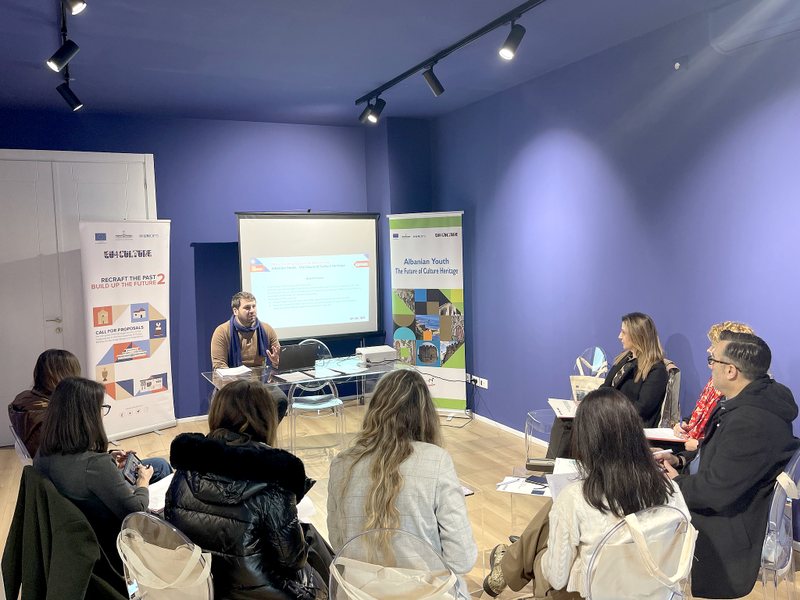“EU4Culture” together with representatives of the delegation of the European Union, the Ministry of Culture and UNOPS developed monitoring to evaluate the progress of the grant program. “EU4Culture” states that the team visited the NGOs, which are implementing the grant initiatives in Tirana, Kavajë, Rrogozhinë and Durrës. “During the meetings with NGO representatives, we discussed the progress and impact of the projects in the local communities. We examined the challenges and achievements of each project, offering knowledge and recommendations for the future. Between the projects, we had the opportunity to visit the Artisan Lab bus from Tradita Popullore, which showcases the works and techniques of artisans, as well as traditional Albanian clothing. Overall, the visits proved to be very useful and we look forward to the continued success of these projects in the future,” said “EU4Culture”. Furthermore, “EU4Culture” states on its website that the grant program “Recreate the past, build the future 2” aims to promote opportunities for local communities to engage with cultural heritage objects through activities that bring socio-economic development. The “EU4Culture” project is financed by the European Union (EU) and, as previously announced, is implemented by the United Nations Office for Project Services (UNOPS) in cooperation with the Ministry of Culture of Albania. EU4Culture focuses on the renovation and revitalization of major cultural heritage sites damaged by the earthquake and represents one of the largest cultural heritage programs funded by the European Union. At the same time, the project supports local enterprises, crafts and cultural initiatives around the selected sites through grants, giving a boost to the local economy.
© 2024 qarku.al News. Të gjitha të drejtat e rezervuara.
